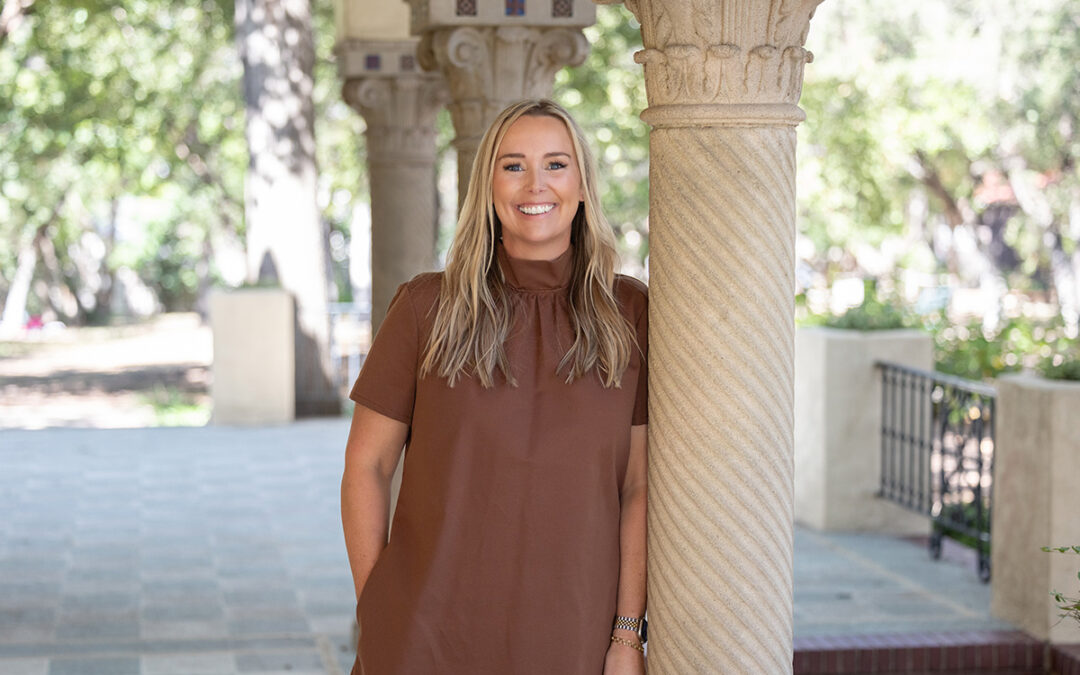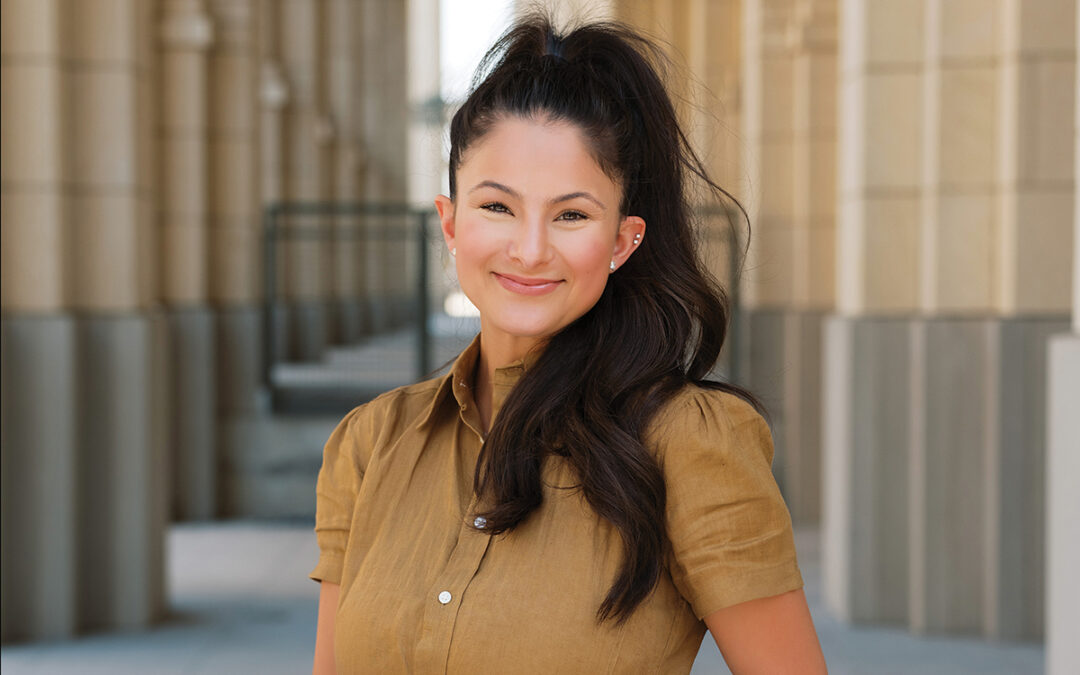NEETA SINGH
Age: 35
Occupation: Associate professor of nutrition, University of the Incarnate Word.
Background: Diplomat’s daughter who was educated in several countries on three continents, earning three advanced degrees.
Personal: Single but open to cross-cultural dating; enjoys spending time with her sister, Tina, and family, who also live in San Antonio.
Why she’s a Role Model: As a self-described “global citizen,” she finds opportunities to combine academic research with helping people in developing nations to find sustainable sources of good nutrition.
Best advice ever given: “My sister tells me, “Try to enjoy the simple pleasures in life — pay attention and appreciate the small moments around us,’ like a couple holding hands or the aroma of a good cup of coffee.”
Believes in … Relationships: “I draw strength from my family and my students. Being around young people is a healthy environment.”
Favorite relaxation strategies: Four-mile runs on the UIW track, reading in coffee houses, watching classic sitcoms on TV.
What she’s reading: Dead Aid: Why Aid is not Working and How There is a Better Way for Africa, by Zambian economist Dambisa Moyo, who advocates fresh approaches to foreign aid to help the developing world become self-sufficient.At a bookstore coffee shop, Neeta Singh orders a large coffee with no fluff or added flavors. No pastry either — it’s midafternoon, between lunch and dinner, and she’s not hungry. Slender and fit, Singh doesn’t look like someone who’s passionately interested in eating, but she has devoted her professional life to the study of food.
As an academic in the growing field of international nutrition, Singh concerns herself with global patterns of food use — what people grow, how much they have to eat and how it affects the health of whole populations. Far from an esoteric preoccupation, Singh says the study of food is essential to the human condition. “What else (besides nourishment) is there that we all have to do, where we all have the same basic needs?” she asks rhetorically. Her interest in both internationalism and the issue of food scarcity came early, thanks to her childhood experience of cultures other than her own. Although her parents came from the state of Rajasthan in northwestern India, her father’s career as an Air Force officer attached to his country’s diplomatic service took them far beyond its borders as Singh was growing up. For several of her elementary-school years, the family lived in Moscow, where she attended a Russian school. “This was during the Cold War years,” she says, “when food was not so plentiful for the people of the Soviet Union.” The Singhs shopped in a commissary and in stores for foreigners, so the food young Neeta brought to school was different from what her schoolmates were used to eating. “If I gave some of my food to my friend Sasha, I could see that she was thinking about the difference between what we ate and what most of my classmates had,” says Singh. “It started me thinking about why some people have more and others have less, and wondering what we could do to make our share of the world’s food more equal.”
Even before the family moved to London for her father’s post at the Indian consulate, she spent summers in England, learning yet another language. “To my parents, learning to speak and understand English was a very important part of my education,” she says. At school in London, she noted again the difference between the food available in England and what she had seen in the Soviet Union. By the time Singh was in her teens, she was a native speaker of both Hindi and Punjabi and was fluent in Russian and English, later picking up Bangla, the language of Bangladesh. “I think of myself as a citizen of the world,” she says. “I feel I can be comfortable anywhere. I can blend with the culture wherever I am.” After completing her education through a master’s degree at Rajasthan Agricultural University in Bikaner, Rajasthan, India, Singh tried another new environment, moving to Corvallis, Ore., where she earned her Ph.D. in nutrition and food systems management. As a graduate student, she was a researcher for a project funded by the United States Agency for International Development (USAID) to develop a graduate program in nutrition and health for Bunda University in Malawi, Africa.
The position she eventually applied for in 2001 at Incarnate Word included similar planning and research. As an associate professor in the university’s nutrition program, she not only teaches students but is responsible for financial and strategic planning for the undergraduate and graduate dietetics program. When Singh first saw the position listed, she felt the duties were a custom-match for her interests and experience. She wasn’t so sure about the location. “I knew of Texas only that it was a big state with big vehicles,” she says. “It wasn’t in my comfort zone.” When she first visited, “I was not seeing pedestrian walkways (outside the university campus),” says Singh. “I thought, “Where am I going to walk?'” Still, coming from years in the rainy Pacific Northwest, she liked the South Texas climate. More important, she liked the university’s commitment to internationalism and outreach, including her responsibility for increasing enrollment and retention of minority students in the areas of health and nutrition.
Thanks to a project supported by the Sisters of Charity of the Incarnate Word, Singh was able to combine research with a social empowerment project in Tanzania. For two summers, in 2007 and 2008, Singh worked with a women’s collective in Bukoba Rural, Kagera Region, Tanzania, identifying their nutritional problems and helping them to find solutions. “I’ve always been fascinated by Africa,” she says. When the first study of malnutrition in Tanzania was published, she was intrigued by the challenge. The survey showed that the country’s smallest region also was its neediest. With funding from the Women’s Global Connection, Singh and a graduate student conducted focus groups among women from area villages, learning that a lack of protein was the greatest deficiency in their diet. “We also asked them what their skills were,” she says, “and were told that their major skill set was farming.” Because soybeans are an easily renewable, environmentally friendly source of protein that had grown well in other parts of Africa, Singh proposed that the group try growing them on 10 acres of land owned by Women’s Global Connection. That first season, with a rented tractor and seeds bought with grant money, the local women raised 4,500 pounds of soybeans — “much more than we thought it would be,” says Singh.
The next hurdle was to get people to include a new food in their diet. Singh sat down with them and asked what they ate and how they could incorporate soybeans in familiar recipes. The women’s group not only came up with ways to prepare soybeans but learned to process the crop to make soy flour, which could be used to sneak added protein into a popular flatbread without altering the taste. In a little more than a year, the relatively low-cost project had taught a population living close to the edge of starvation to move toward self-sufficiency. Now known as the Bukoba Women’s Empowerment Association, the collective Singh worked with is moving toward processing and marketing their crop in value-added forms, such as flour, to people in other parts of Africa. The women’s group “was great to work with,” she says. “They are so practical. When things don’t work out, they ask themselves, “What should we do next?’ and move on.” Loosely organized around a core group of women from different villages, the Bukoba women “aren’t hierarchical or concerned with who should lead them,” says Singh. “They are so motivated to help their families.”
Though Singh has presented papers on her Tanzanian study to several academic conferences, she gets the most satisfaction out of talking about it with her students in courses on international nutrition and food systems management. “I hope it will be inspiring to them,” she says. “I want them to get excited about using their education to do something that helps other people.” Most of the students she teaches plan a career as registered dietitians. “I want to teach them that you have your job,” she says, “but you can also do some kind of work outside of that, just for the satisfaction of it.” Because Incarnate Word is primarily a teaching institution — where Singh has won an outstanding educator’s award — she needs to juggle her classroom responsibilities with publishing her results and applying for grants to fund further research. That doesn’t leave a lot of free hours, but she likes to spend time with her sister, Tina Singh, an engineer at Valero, who graduated from Texas A&M University and also lives in San Antonio with her family. Once or twice a year, she enjoys visiting her parents, who decided to settle in Rajasthan after her father’s retirement. “I still hold an Indian passport,” she says. “Although I think of myself as a global citizen, and I pride myself on my ability to blend in anywhere, I guess I’m still hanging onto that part of my identity.”
Aware of the Indian custom of arranged marriages, she says she feels no pressure to wed and expects to make her own choice. “My parents are cool with that,” Singh says, smiling. “Except once in a while, my mother reminds me, “You’re not married.'”
Other than continuing her work and travel, she’s cautious about planning too far ahead. “I like to keep a loose agenda,” she says. “I’ll go where life takes me. I want to stay open to experience.”
Author: Paula Allen
Photographer: Janet Rogers









0 Comments